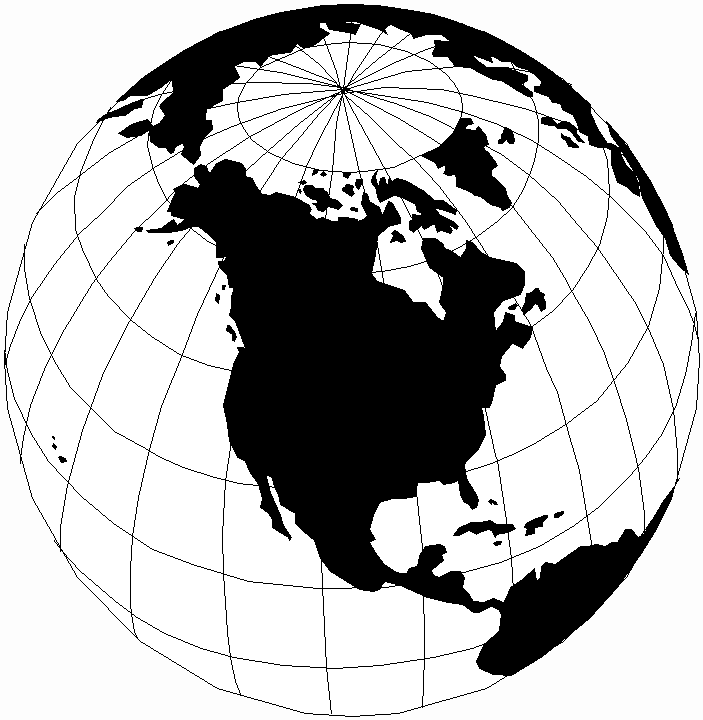
Prophetic Times
|
WEEKLY WORLD NEWS UPDATE |
OAKLAND, CALIFORNIA |
31 JANUARY |
POWELL SEEKS US BASES IN EASTERN EUROPE
January 28, 2004
The EUObserver reported: "US Secretary of State Colin Powell indicated yesterday that Washington is seeking to place military bases in certain countries in Eastern Europe belonging to the former Warsaw Pact. Speaking to Russian radio after a visit to Moscow, Mr Powell said, "we may want to put some temporary facilities in some of the countries that used to be part of the Warsaw Pact".No specific countries were mentioned but several former Warsaw Pact countries will be joining the EU in May. Recognizing that the news could spark old Cold War alarm bells in Moscow, Mr Powell emphasised, "but these would not be big bases of the kind we had in Germany during the days of the Cold War. These might be small places where we could go and train for a brief period of time or use air bases as access to get to dangerous places".
"But it is not essentially moving our army closer to the Russian Federation and people should not see it in that light ... we are not trying to surround anyone".
Other topics raised between the two former superpowers were the vexed issue of Chechnya and Russian President Vladimir Putin's handling of the opposition and the media."

EUROPEAN POLL: 46% SAY JEWS ARE 'DIFFERENT’
January 26, 2004
Haaretz.Com reported: "A poll of nine European nations that was released Monday found that 46 percent of respondents said Jews in their nations were "different," and 35 percent said Jews should stop "playing the victim" for the Holocaust. Some 9 percent of the respondents said they "don't like or trust Jews," and 15 percent said "it would be better if Israel didn't exist."
The poll by the Ipso research institute for Italian newspaper Corriere della Sera was conducted in Italy, France, Belgium, Austria, Spain, the Netherlands, Luxembourg, Germany, and Britain. The poll, released a day before many European countries mark a day of remembrance for Holocaust victims, was the latest pointing to what Jewish leaders see as a worrying trend.
"Obviously the virus of anti-Semitism is far more resilient and determined than we might have thought in the past," said British-born Rabbi David Rosen, international director of inter-religious affairs of the American Jewish Committee, who lives in Israel.
Asked if Jews in their countries had a "mentality and lifestyle" different than other citizens, 46 percent said yes. About 40.5 percent said Jews in their country had "a particular relationship with money" and 35.7 percent said Jews "should stop playing the victim for the Holocaust and the persecutions of 50 years ago."
The poll also differentiated between the countries surveyed, finding that German, Austrian, Spanish and Italian hostility toward Jews was higher than that in the rest of the countries. In all the countries, anti-Semitic sentiment was positively correlated with anti-Israel sentiment.
More than 71 percent of those polled said Israel should leave the occupied territories and Palestinians should stop attacking Israeli targets. More than 68 percent said they believed Israel had a right to exist but the government of Prime Minister Ariel Sharon was "making the wrong choices."
A poll published Friday in Britain's Jewish Chronicle newspaper found that nearly one in five Britons says a Jew would not make an acceptable prime minister, and almost one in seven believes the scale of the Holocaust is exaggerated.
In November, Correire della Sera published a national poll that found that 51 percent of Italians think the mentality and way of life of Jews differs from those of other Italians, and 17 percent said it would be better if Israel ceased to exist."
SAUDI DEMOCRATS WARN THAT KINGDOM IS IN JEOPARDY
January 25, 2004
Middle East Newsline reported: "Leaders of the democratic movement in Saudi Arabia have warned that the kingdom is rapidly deteriorating. In an open letter to the Saudi people, the Saudi democrats warn of division within the leadership and plans for a crackdown on reformists. The Jan. 3 letter blamed Saudi Interior Minister Prince Nayef Bin Abdul Aziz with blocking efforts for reform.Nayef has blocked the implementation of reforms pledged by Crown Prince Abdullah Bin Abdul Aziz, the letter said. The Saudi democrats portrayed a divided ruling family uncertain of how to quell rising unrest and Al Qaida attacks in the kingdom.
The letter also reported Saudi anger at the interest of the United States in the new democracy movement. The Saudi democrats said Nayef was furious that a U.S. consul in Jedda, identified as Gina Abercrombie-Winstanley, accepted an invitation by dissident for a discussion on Saudi democracy."
TRAFFICKING IN NUCLEAR ARMS CALLED WIDESPREAD
January 24, 2004
International Herald Tribune reported: "The head of the United Nations' watchdog agency on atomic weapons said Friday that the illicit trafficking of nuclear-related material and equipment had grown so widespread that it amounted to a Wal-Mart for weapons-seeking countries.Mohamed ElBaradei, the director-general of the International Atomic Energy Agency, said he as taken aback during a recent trip to Libya by the scale and complexity of the black market, through which Libya obtained material and blueprints for nuclear weapons designs. ."All of that was obtained abroad," ElBaradei said in an interview during the World Economic Forum meeting here.
"All of what we saw was a result of the Wal-Mart of private-sector proliferation. ."When you see things being designed in one country, manufactured in two or three others, shipped to a fourth, redirected to a fifth, that means there's lots of offices all over the world," he continued. "The sophistication of the process, frankly, has surpassed my expectations."
The Libyan leader, Muammar el-Qaddafi, invited ElBaradei and his inspectors to the country last month after pledging to dismantle his nonconventional weapons programs. ElBaradei said he was very satisfied with the level of cooperation shown by the Libyans. "They are taking us everywhere we want to go," he said. "They are answering all our questions, they are showing us all of what they have. That doesn't mean that we still do not have to do verification."
ElBaradei's confidence, however, was leavened by his acknowledgment that neither the atomic energy agency nor the intelligence branches of the big countries have a grip on the extent of nuclear trafficking. ."The system is under a good deal of stress," he said. "We need to take this seriously."
For many experts who have gathered in Davos, nuclear proliferation is looming as the next big security threat. Much of the focus has centered on the suspected trail of nuclear material and skill from countries like Pakistan and North Korea to striving nuclear powers like Iran and Libya. ."
LIBYA HANDS OVER NUCLEAR WEAPONS DESIGN TO UNJanuary 24, 2004
The Voice of America reported: "Libya has handed over a design for nuclear weapons to the United Nations nuclear agency. The drawing provides the first hard evidence that Libya was planning to build nuclear arms. A spokesman for the U.N. nuclear watchdog agency said Friday the drawings are sealed and secure, but gave no details about what the designs contain.The drawings are now in Washington. U.S. experts will open them in the presence of U.N. officials, to determine how advanced Libya's plans actually were. The U.N. nuclear agency, which is overseeing Libya's disarmament, has said Libya was years away from developing a nuclear weapon.
U.S. and British experts in charge of removing and destroying Libya's arms capabilities believe Libya was making an aggressive push toward gaining the knowledge and materials to build nuclear weapons.
Last month, Libyan President Muammar Gaddafi pledged to abandon his country's weapons of mass destruction campaign, hoping to bring an end to U.S. economic sanctions that have been in place since the mid 1980s.
The United States banned Libyan oil imports in 1982 and expanded those sanctions in 1986 to ban all import and export activity between the two countries.
U.S. and Libyan diplomatic ties deteriorated further after the U.S. suspected Libyan involvement in the 1988 bombing of Pan Am flight 103, which blew up over Lockerbie, Scotland killing all 270 people on board. In August, Libya admitted responsibility for the plane crash and moved to make more than $2.5 billion in reparations to the families of those killed, on the condition that U.S. and U.N. sanctions are lifted.
Last month, in a move to speed up improved relations with the U.S., Tripoli invited arms inspectors to come into Libya and dismantle and remove any nuclear, chemical or biological weapons materials. Officials from the International Atomic Energy Agency and a team of U.S. and British experts have been in Libya since Tuesday. In addition to finding designs for weapons, they also hope to also uncover any weapons components."
L. Jim Tuck, Pastor
UCGIA Oakland, San Jose, Stockton, and Santa Rosa